Fun Indoor Activities For Adults That Build Skills And Spark Joy
Overview
From rainy-day crafts to movement-based mindfulness, there’s something here for everyone. Whether you’re interested in cooking, candle making, board games, pottery, or gentle indoor yoga, these activities are practical, enjoyable and easy to tailor with the support of a worker, friend or family member. Some spark creativity. Others build coordination. All of them can add meaning to time spent indoors — rain or shine.
It’s pouring outside. The heater’s on. The plans you had for the day have shifted — again.
Maybe you’re sitting at the kitchen table with a cup of tea, wondering what to do next. Or maybe you’re a support worker, looking for ways to make the afternoon meaningful. This is the moment many of us know well, when going out isn’t possible, but you still want connection, growth, or even just a spark of joy.
And the good news? Some of the best support, creativity and confidence-building can start right here at home.
When you’re spending more time indoors, whether it’s the middle of winter, a scorching hot day, or a rainy day that keeps you inside, it’s easy to feel a bit stuck. But the truth is, staying in doesn’t have to mean slowing down. In fact, some of the most meaningful, joyful and skill-building moments can happen within your own four walls.
If you’re a person living with disability, or supporting someone who is, you already know that the little things can often lead to big breakthroughs. A new recipe was tried together. A photo album that brings back memories. A hand-stitched scarf is made one row at a time.
Indoor activities aren’t just something to pass the time; they’re a powerful way to build confidence, grow skills, express creativity, and stay connected. And many of them align beautifully with NDIS goals like Capacity Building, Improved Daily Living, or Social and Community Participation. The best part? They can be done with minimal cost, right from your kitchen table, couch or living room floor, making them a perfect indoor option no matter the season.
Let’s explore a few of these everyday activities and how they can become meaningful building blocks in a person’s journey toward greater independence and joy, rain or shine.
Confidence starts in the kitchen (with cooking & baking)
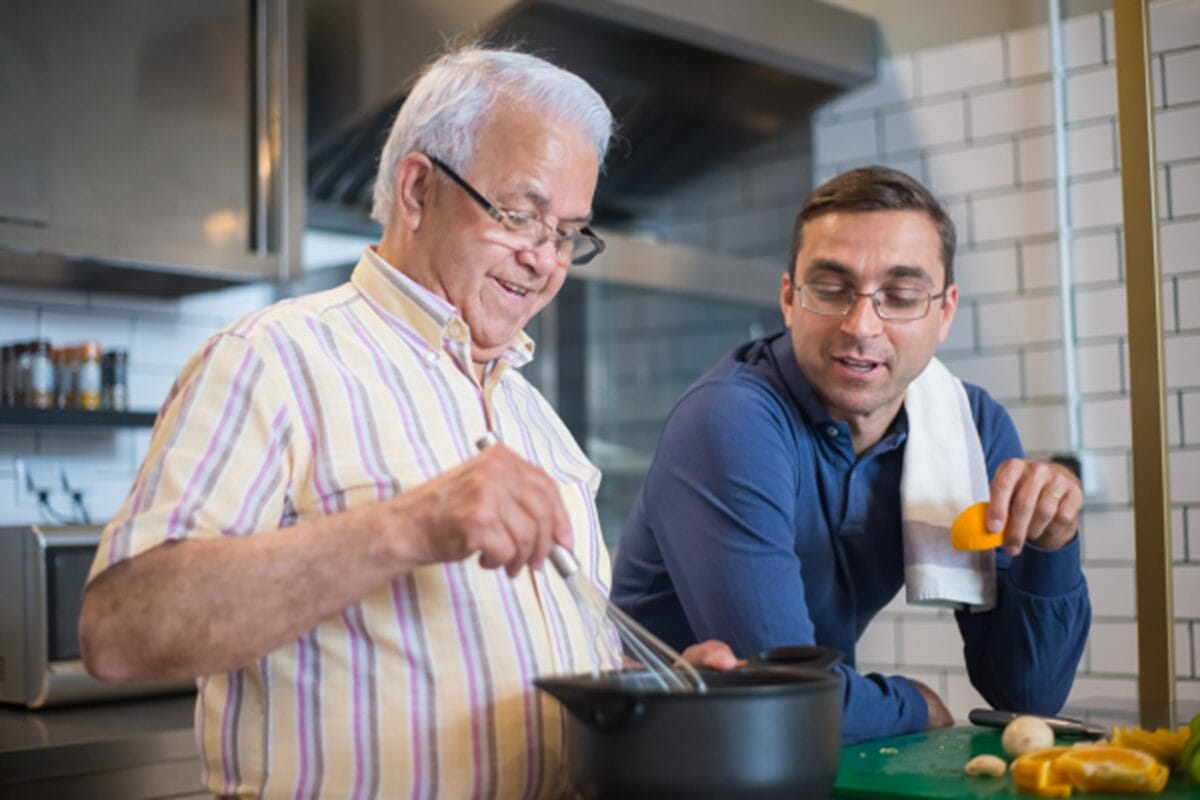
The scent of something simmering. The quiet pride of serving up a meal. For many people, the kitchen becomes a place of possibility, where decisions are made, skills are tested, and confidence slowly rises like dough in the oven.
Cooking supports a wide range of NDIS-related skills: following instructions, using equipment safely, managing time, understanding nutrition and building independence. For some, it might begin with stirring cake batter or peeling potatoes. For others, it could mean planning a week’s worth of meals and cooking with minimal support. Every step is progress.
With the right support and a few small wins, the kitchen can transform from a place of uncertainty into a space of real self-confidence. Whether it’s learning to make spaghetti bolognese or mastering a favourite breakfast dish, each step brings independence and joy to daily routines.
Hone in and thread your focus (with knitting)
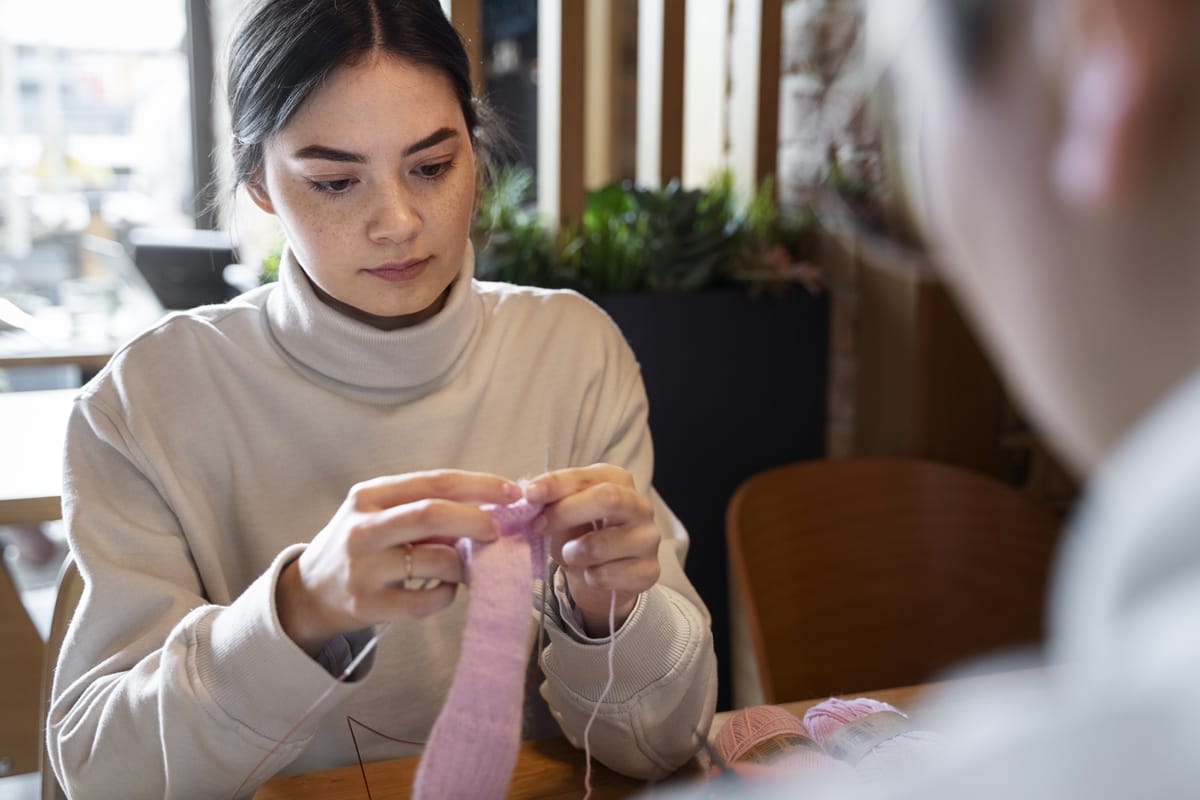
There’s something uniquely calming about the gentle repetition of working with yarn. For some, it’s the focus of counting stitches and watching a project take shape. For others, it’s the sensory comfort of soft wool and a quiet activity that allows for side-by-side conversation.
Knitting and crocheting aren’t just relaxing, they also help strengthen fine motor skills, coordination, planning and perseverance. These crafts can be adapted to suit a wide range of abilities, and they offer a real sense of achievement with every finished row or completed scarf, a perfect indoor project to unwind on a rainy day.
Quiet afternoons at home can be the perfect time to slow down and unwind with a crochet hook or knitting needles. Over time, what starts as a simple project can grow into something meaningful, like a hand-made gift, a scarf, or a cosy blanket.
Sit down and make scents of it all (with candle making)

Making candles might sound like something you’d do in a specialist workshop, but it’s surprisingly easy to do at home, and offers a rich, multi-sensory experience that can be deeply rewarding.
From choosing a scent to melting the wax and decorating a jar, candle making involves hands-on decision-making and creativity. It also supports planning, sequencing, and safe handling of materials, all skills that tie in with daily living goals.
Candle making is an easy and rewarding way to turn creativity into something practical. Choosing scents for loved ones, designing labels, and completing a finished product can help build confidence, routine and a sense of purpose.
Why not spin it your way (with beginner’s pottery)
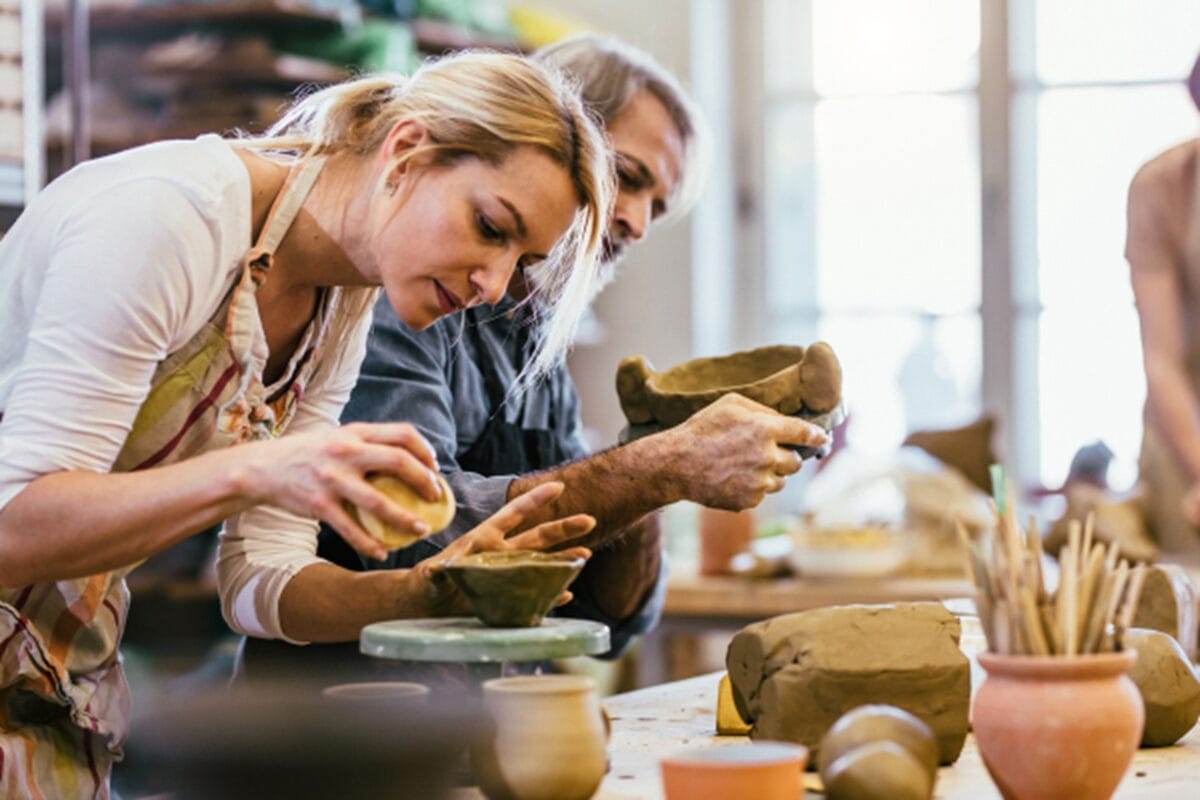
You don’t need a wheel or a kiln to enjoy pottery. Air-dry clay makes it possible to sculpt, mould and create all sorts of handmade pieces right at home, from small bowls to personalised trays or figurines.
For many people, working with clay is therapeutic. It offers a tactile way to calm the nervous system, focus the mind, and stay present in the moment. For others, it’s a joyful, messy chance to explore shapes and textures in a new way, making it a fantastic rainy day choice for sensory engagement.
Pottery also supports coordination, spatial awareness, and task planning. And because each piece is one of a kind, it brings with it a powerful sense of ownership and pride.
Stick it where it matters (with scrapbooking and photo album making)
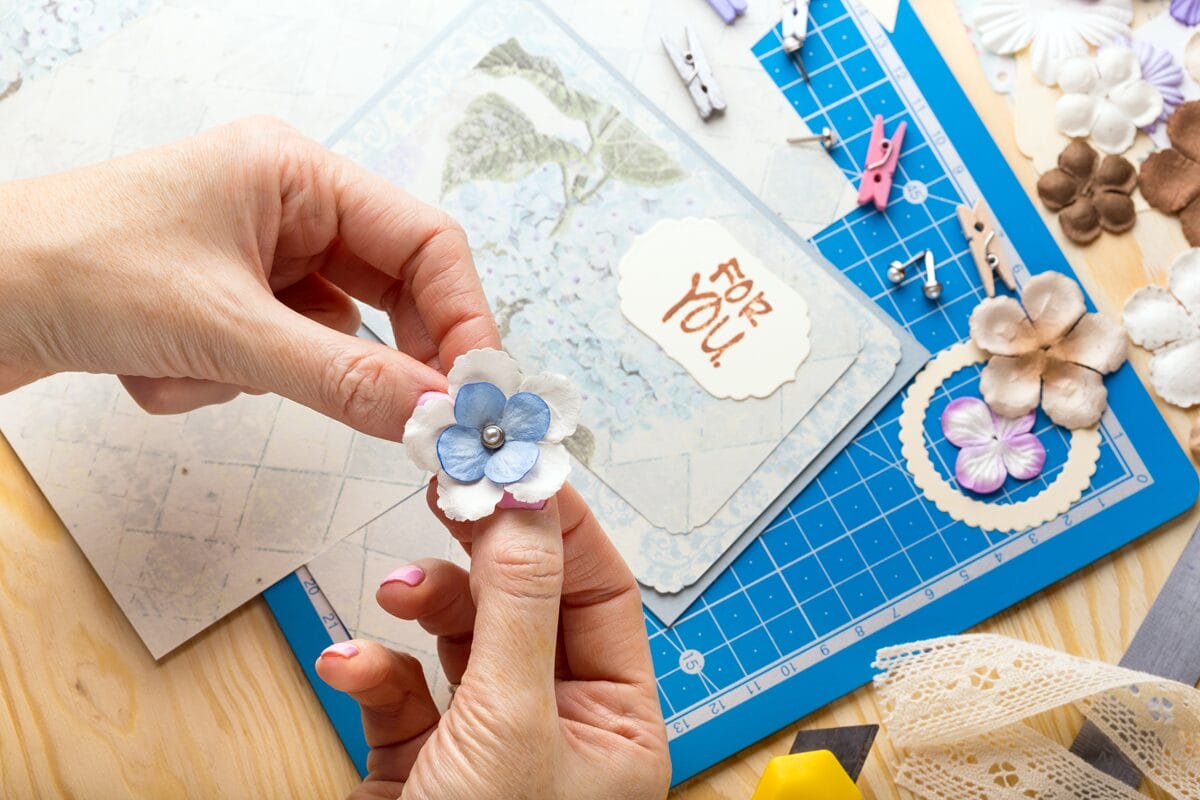
Scrapbooking is far more than cutting and pasting. It’s an opportunity to reflect, remember, and create something that tells your story, in your words, your images, your own design.
For people working on memory, sequencing or communication, scrapbooking can help tie together events, relationships and milestones in a visual, engaging way. It’s also deeply personal; each page becomes a reflection of what matters most.
Many people enjoy creating albums that highlight personal achievements, family moments or favourite pets. These projects often become conversation starters and cherished keepsakes, helping to spark memory and strengthen a sense of identity.
Design and string it together (with jewellery making)
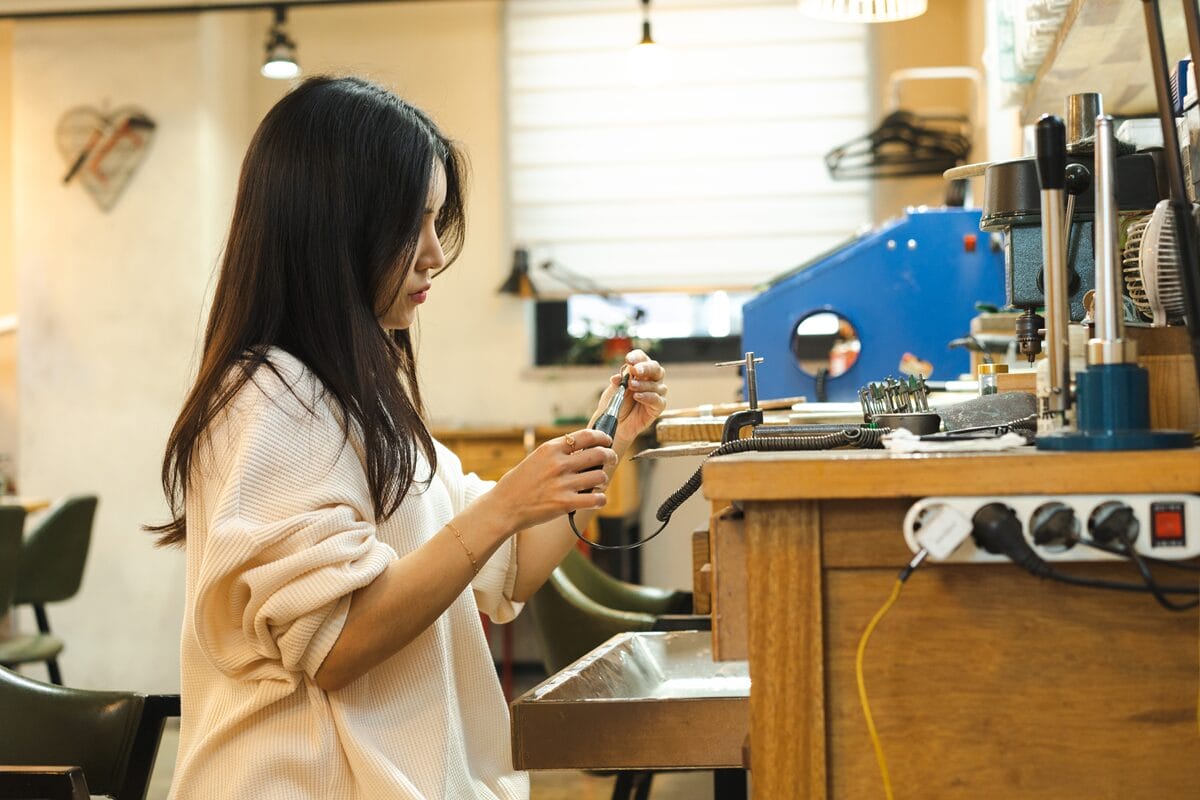
Working with beads, soft metal or clay to create rings or necklaces is both fun and functional. It supports fine motor skills, visual planning, creativity and patience, but it’s also a powerful way to express identity and care for others.
Jewellery-making sessions often turn into social experiences, too. Whether making gifts for family or creating matching friendship bracelets with a housemate, the process becomes about more than the final product. It becomes about connection.
This activity is also great for people who enjoy structured tasks with visible results. Each finished piece can be worn or gifted, helping build a strong sense of purpose and progress, perfect for a weekend indoors when you’re looking to create something meaningful, rain or shine.
Taking it one thread at a time (with embroidery)
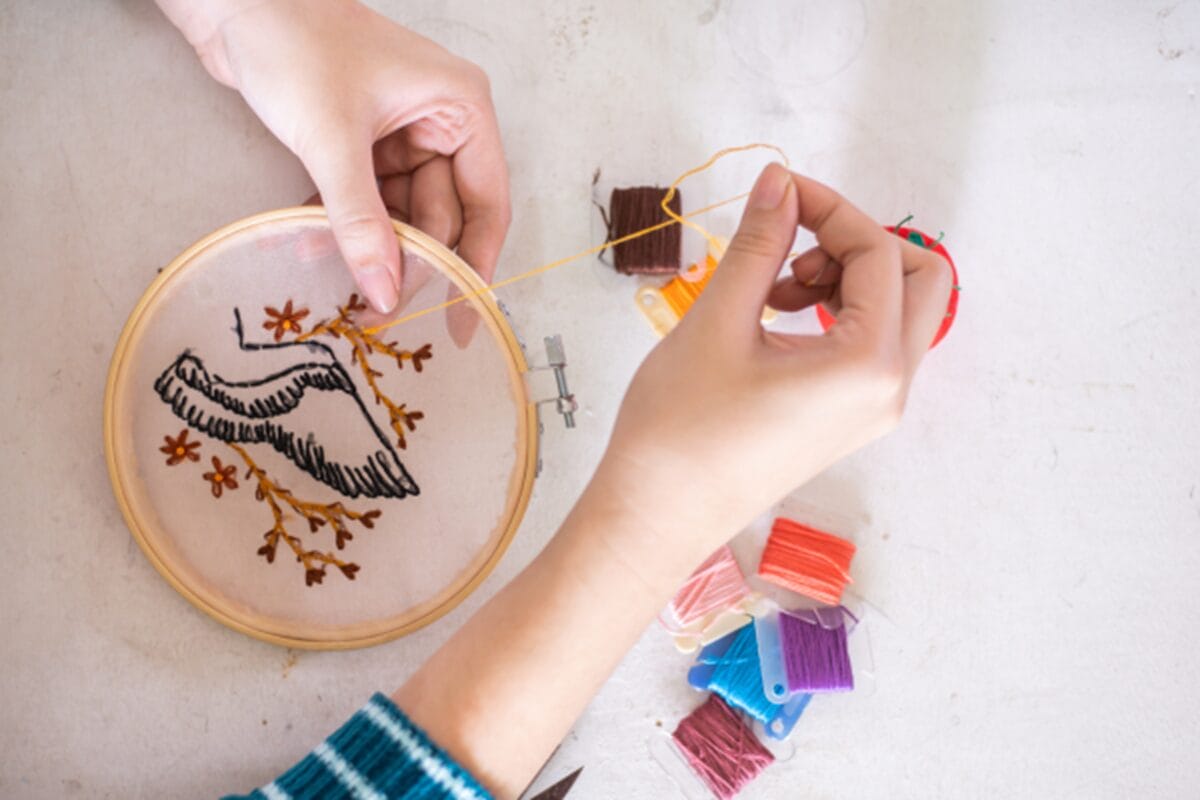
Embroidery invites a kind of attention that’s hard to find in our fast-paced world. Stitch by stitch, pattern by pattern, it builds concentration, planning and fine motor strength, all while offering a peaceful, rewarding sense of flow.
Many participants begin with simple shapes or words. Over time, they create beautiful keepsakes, framed designs or patches they can wear or display. And because the work is so tactile and rhythmic, it can also be helpful for people managing anxiety or seeking structured downtime in their day.
Embroidery might take time to master, but with each stitch, there’s a growing sense of capability and control. And that’s what makes it so special.
It’s your move (with board games)
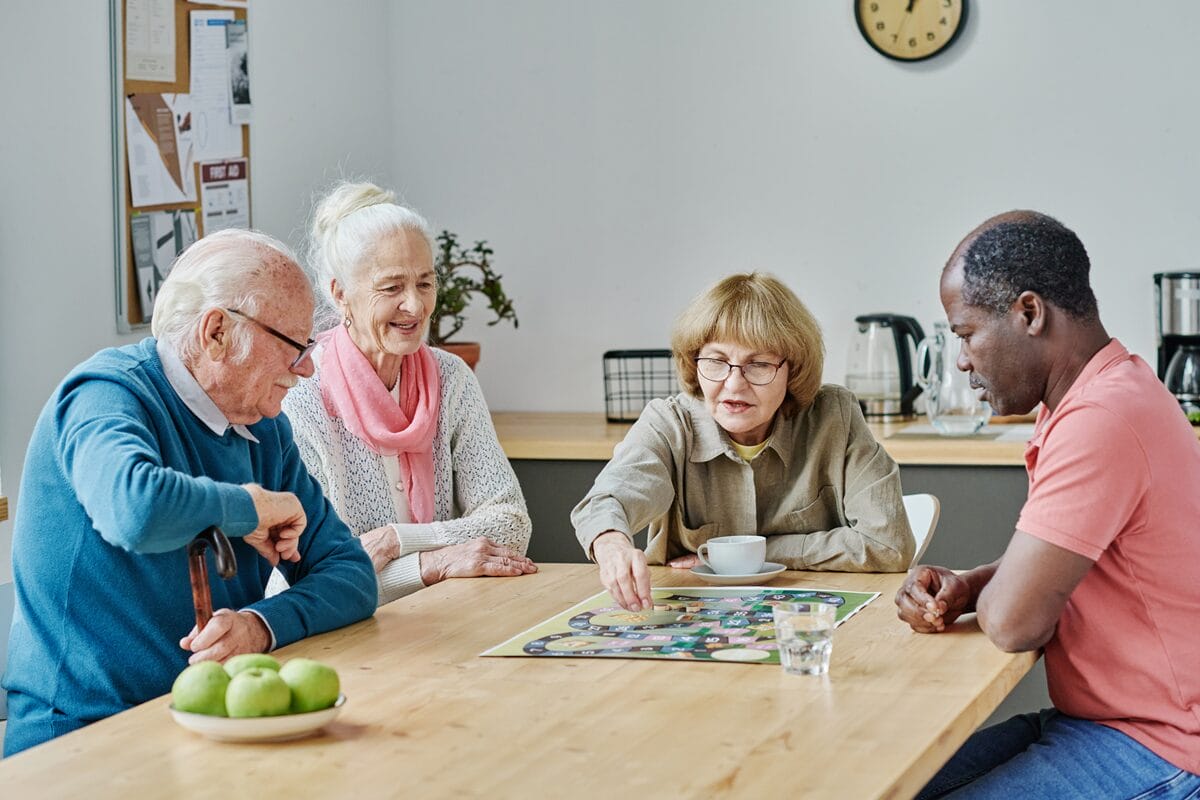
There’s something about board games that brings people together. Whether it’s a quick round of Connect Four or a full family night of Monopoly, games offer fun, laughter and learning all at once.
Beyond entertainment, games help with memory, language, social interaction, and emotional regulation, especially around winning and losing gracefully. They also build turn-taking and communication skills, making them ideal for small group settings or supported housemates.
Board games can also be incorporated into themed rainy day activities or even used as the final stop in an indoor scavenger hunt, where each clue leads to a fun challenge or conversation prompt. A shared game can quickly shift the tone of the day, turning a quiet afternoon into a moment of joy and connection.
Stretch it out (with yoga)
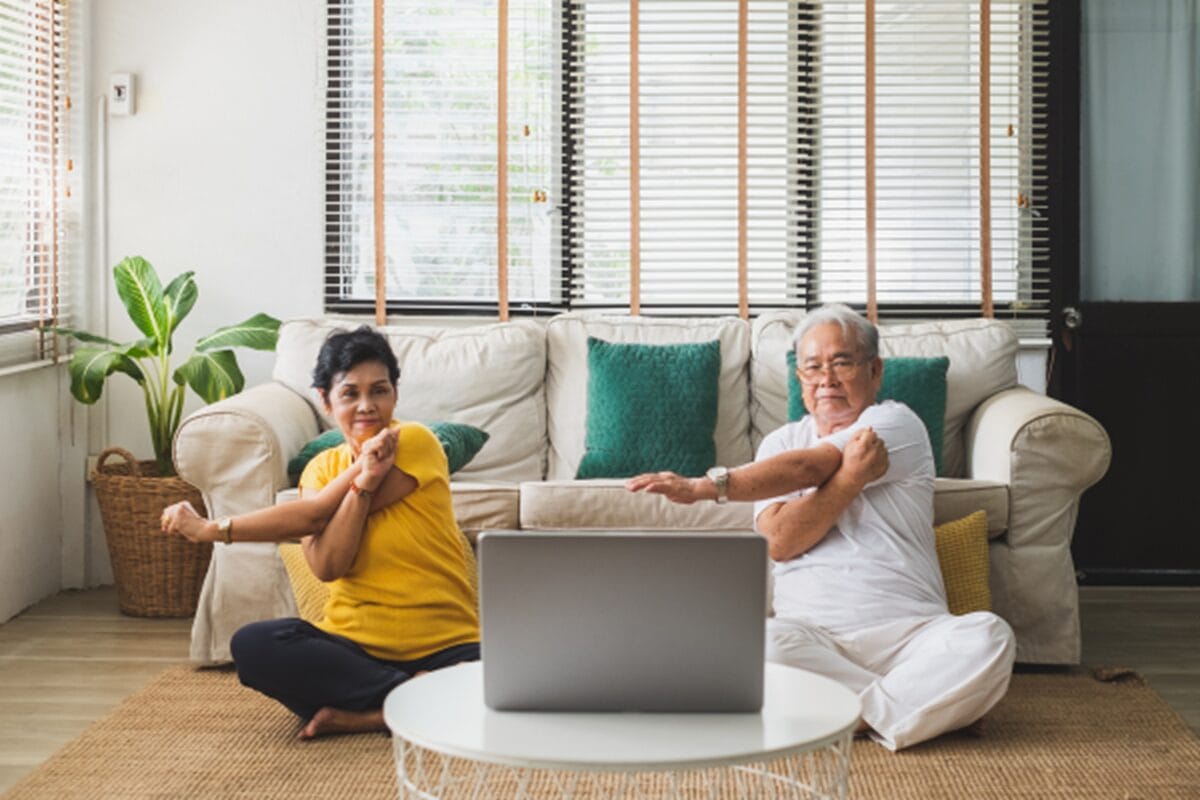
You don’t need to be flexible or athletic to benefit from yoga. With a chair, a mat and some quiet time, you can begin a simple movement routine that supports both physical and emotional wellbeing.
Yoga helps improve balance, coordination, strength and flexibility, but it also teaches breathing, mindfulness and focus. For participants managing stress, sensory overload or anxiety, even a short yoga session can help bring calm and clarity.
Support workers often introduce gentle routines with visual guides or music. Over time, it becomes a grounding part of someone’s weekly rhythm, a way to reconnect with their body and their breath. And because it can be done indoors, it’s a perfect indoor option for rainy days or hot afternoons alike.
This is where it really adds up
The real power of these activities isn’t in how complex they are. It’s in how they’re shared. A craft becomes a skill-building session. A game becomes a social bridge. A meal becomes a milestone.
Support workers and families can make these moments matter even more by allowing choice, encouraging curiosity, and celebrating the effort, not just the outcome.
And most importantly, let the person lead. When someone chooses the activity, sets the pace and sees their own success, the growth is not only measurable, it’s lasting.
Let’s make more of staying in

At St Jude’s, we believe every person deserves support that empowers. And sometimes, that means looking not to complex therapy tools, but to everyday activities that bring comfort, connection and joy, the kind of things you can enjoy rain or shine.
If you’re looking to make the most of your time at home or want help finding supports that align with your goals, we’re here to help.
Reach out to our team today to explore how we can support you or your loved one with NDIS-funded services, creative programs and person-centred care that fits your life, your pace, and your preferences.
Because meaningful progress can happen anywhere, even around the kitchen table, or during a rainy day scavenger hunt.